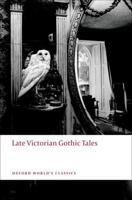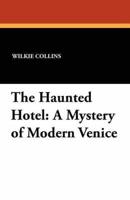Publisher's Synopsis
At the age of nineteen, Edmond Dantès seems to have the perfect life. He is about to become the captain of a ship, he is engaged to a beautiful and kind young woman, Mercédès, and he is well liked by almost everyone who knows him. This perfect life, however, stirs up dangerous jealousy among some of Dantès's so-called friends. Danglars, the treasurer of Dantès's ship, envies Dantès's early career success; Fernand Mondego is in love with Dantès's fiancée and so covets his amorous success; his neighbor Caderousse is simply envious that Dantès is so much luckier in life than he is. Together, these three men draft a letter accusing Dantès of treason. There is some truth to their accusations: as a favor to his recently deceased captain, Dantès is carrying a letter from Napoleon to a group of Bonapartist sympathizers in Paris. Though Dantès himself has no political leanings, the undertaking is enough to implicate him for treason. On the day of his wedding, Dantès is arrested for his alleged crimes. The deputy public prosecutor, Villefort, sees through the plot to frame Dantès and is prepared to set him free. At the last moment, though, Dantès jeopardizes his freedom by revealing the name of the man to whom he is supposed to deliver Napoleon's letter. The man, Noirtier, is Villefort's father. Terrified that any public knowledge of his father's treasonous activities will thwart his own ambitions, Villefort decides to send Dantès to prison for life. Despite the entreaties of Monsieur Morrel, Dantès's kind and honest boss, Dantès is sent to the infamous Château d'If, where the most dangerous political prisoners are kept. While in prison, Dantès meets Abbé Faria, an Italian priest and intellectual, who has been jailed for his political views. Faria teaches Dantès history, science, philosophy, and languages, turning him into a well-educated man. Faria also bequeaths to Dantès a large treasure hidden on the island of Monte Cristo, and he tells him how to find it should he ever escape. When Faria dies, Dantès hides himself in the abbé's shroud, thinking that he will be buried and then dig his way out. Instead, Dantès is thrown into the sea, and is able to cut himself loose and swim to freedom. Dantès travels to Monte Cristo and finds Faria's enormous treasure. He considers his fortune a gift from God, given to him for the sole purpose of rewarding those who have tried to help him and, more important, punishing those who have hurt him. Disguising himself as an Italian priest who answers to the name of Abbé Busoni, he travels back to Marseilles and visits Caderousse, who is now struggling to make a living as an innkeeper. From Caderousse he learns the details of the plot to frame him. In addition, Dantès learns that his father has died of grief in his absence and that Mercédès has married Fernand Mondego. Most frustrating, he learns that both Danglars and Mondego have become rich and powerful and are living happily in Paris. As a reward for this information, and for Caderousse's apparent regret over the part he played in Dantès's downfall, Dantès gives Caderousse a valuable diamond. Before leaving Marseilles, Dantès anonymously saves Morrel from financial ruin.








